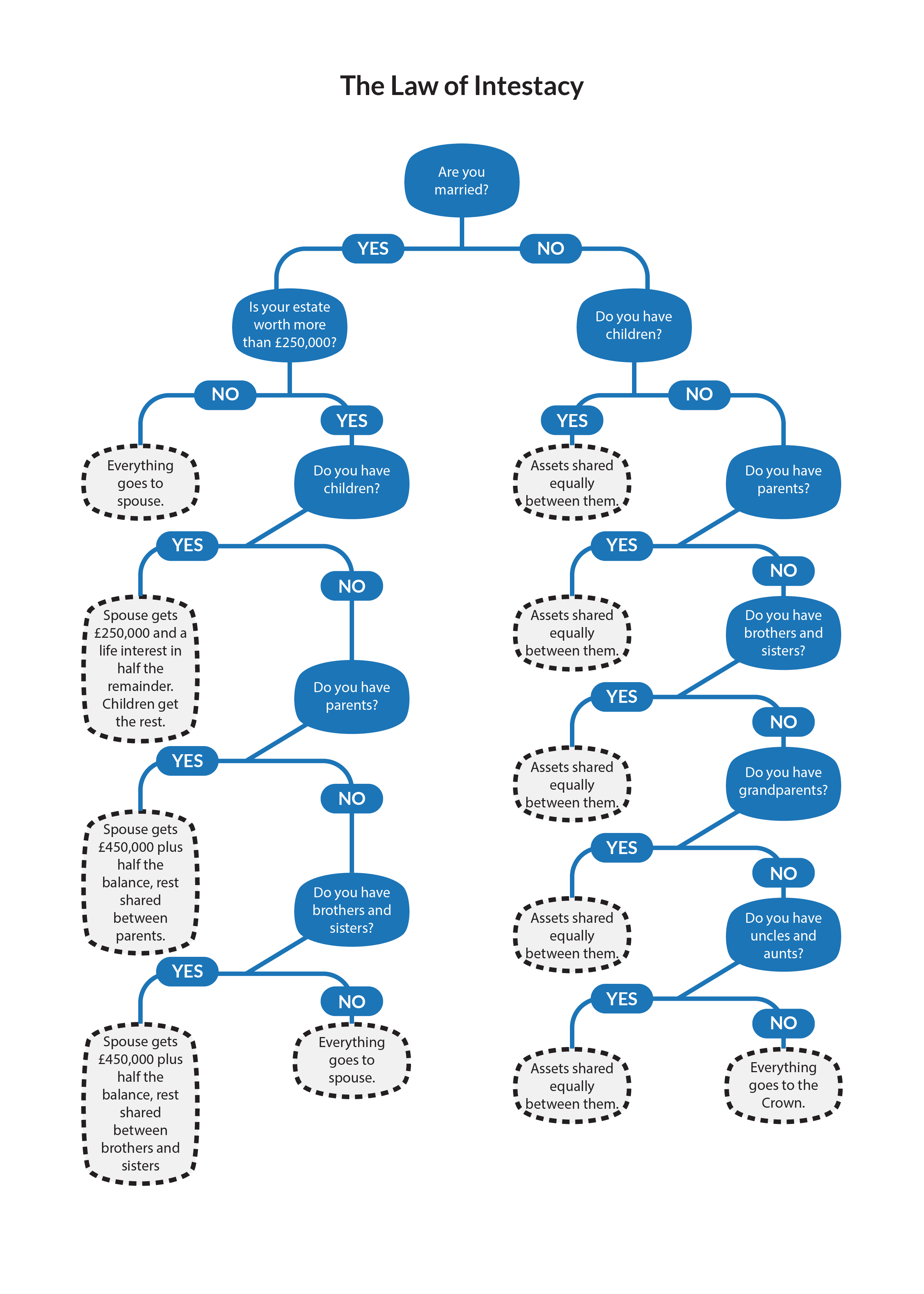If you would like to speak to one of our experts regarding your legal matter simply complete the form below and we will call you back.
10 Reasons Why You Should Write a Will

Figures show that 56% of UK adults intestate (without making a will). Dying without a will can cause significant problems for the people you leave behind, and should be avoided where at all possible. Many say that they plan to make a Will later in life because they feel that it will be too complex and costly. As a result, over 31 million run the risk of dying intestate and having their estate distributed solely according to Intestacy Law.

The purpose of this blog is to provide information and discussion. Nothing on this blog should be relied upon as a substitute for legal advice from a qualified solicitor regarding any actual legal issue or dispute. Nothing on this website should be construed as legal advice or perceived as creating a solicitor-client relationship. Please note that we cannot give advice on individual’s situations or problems on this blog.

- If you do not leave a Will, the law decides how your estate is passed on and this may not be in line with your wishes. This may lead to your spouse having to share your estate with your children whom you may not have intended to benefit straight away. This leads us to point 2…
- In England and Wales, if you are married with children, you might assume that all your assets would go to your spouse. However, if you die without a valid Will and your estate is worth more than £250,000, your partner will only get the first £250,000. If you do not leave a Will, your spouse will get one half of the remainder of the estate and your children, the other half between them. If your assets are worth less than £250,000, your children will get nothing.
- If you are not married, your partner is not legally entitled to any of your estates when you die. At present, the intestacy rules do not recognise cohabitees. If you live with your partner and die without having made a Will, your partner will not automatically inherit any of your estates – there is no such thing as a “common-law wife”. Your partner may have a claim on the estate, but this is expensive and a situation that should be avoided.
- A Will permits you to appoint guardians to look after your children if they are under 18 and you can also make financial arrangements for their benefit in the event of your death.
- Writing a Will can ensure Inheritance Tax (IHT) is kept to a minimum. A properly drafted Trust in your Will could enable someone to manage the inheritance you leave to a disabled or vulnerable person and may ensure the intended beneficiary does not lose his/her means-tested benefits.
- A Will allows you to choose your own Executors. If you die without a Will, your closest relatives will need to apply for ‘Letters of Administration’. The Executors chosen on your behalf may not be in line with your wishes.
- A Will allows you to leave specific sums or items to individuals. These can range from items of jewellery to sums of money.
- A Will also makes it much easier for your family or friends to sort everything out when you die. Without a Will, the process can be more time consuming and stressful.
- It is possible to write your own Will; however homemade Wills should only be used in the most straightforward of circumstances. i.e. leaving your entire estate to 1 person. At BES Legal Ltd, we do not recommend that you write your own Will as without legal assistance, mistakes can be made which can be disastrous, leading to invalid Wills, or the wrong beneficiaries benefitting. Homemade Wills are unregulated and do not offer the consumer protection that a solicitor does as we are backed by Professional Indemnity Insurance and regulated by the Solicitors Regulation Authority.
- Once you have a valid Will, you should review it every 5 years and after any major change in your life such as marriage or divorce, moving home, having a baby or if the executor dies. It is important to note that your Will is automatically revoked on marriage.
The purpose of this blog is to provide information and discussion. Nothing on this blog should be relied upon as a substitute for legal advice from a qualified solicitor regarding any actual legal issue or dispute. Nothing on this website should be construed as legal advice or perceived as creating a solicitor-client relationship. Please note that we cannot give advice on individual’s situations or problems on this blog.
